New move to fight football hooliganism
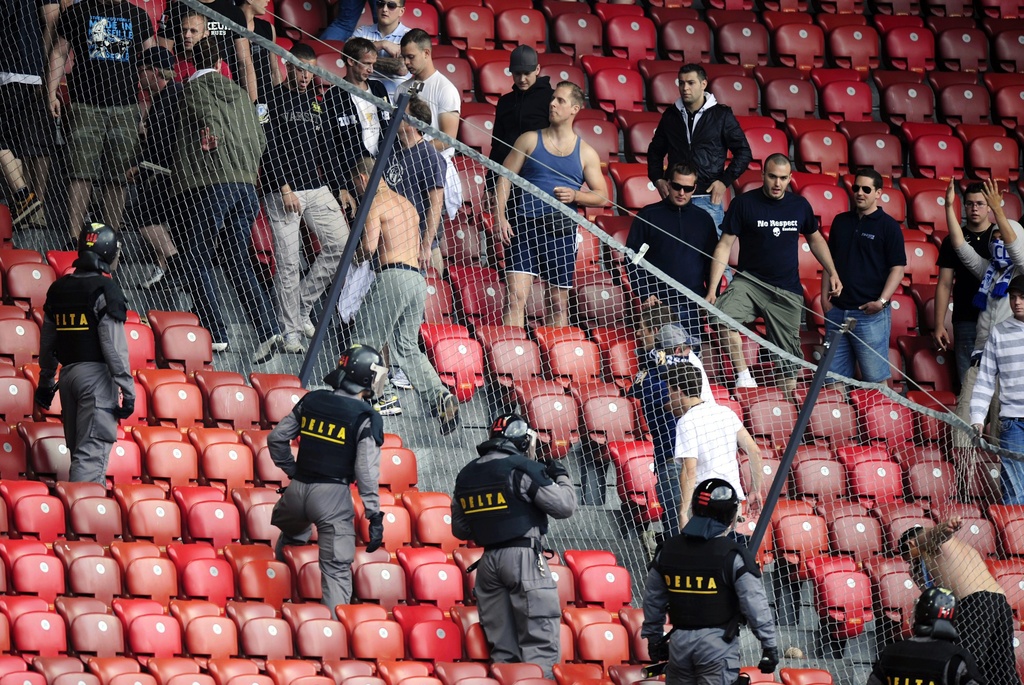
As Swiss football fans—and troublemakers—prepare for the start of the season in a week’s time, the authorities have introduced a new measure to fight hooliganism.
The police say hooligans banned from football stadiums will now also be prevented from going to hockey matches. Despite a raft of anti-hooligan measures, violence in and around Swiss football and hockey stadiums remains a persistent problem.
The reciprocal new measure will affect the 974 hooligans—645 football-related and 329 hockey-related—who are currently on the so-called “Hoogan” database, monitored by the Federal Police Office.
The Conference of Cantonal Police said on Thursday access to stadiums would be decided by the football clubs, the Swiss Football Association and the Swiss National Hockey League.
Marco Cortesi, spokesman for the Zurich cantonal police, said he was sure most banned fans would be prevented from gaining access, “but it cannot be excluded that one or more manages to slip into a stadium”.
“Good idea”
Fernando Martins, the head of security at Neuchâtel’s FC Xamax, felt the move was a “good idea”.
“Often the problems in football and hockey are created by the same people,” he told swissinfo.ch.
Martins said he was preparing for the start of the season on July 17 “with confidence”, in the knowledge that Xamax was a small club that rarely experienced violence inside its new stadium, equipped with modern video surveillance cameras.
“If we spot anyone [violent] they are reported immediately to the police who do their job,” he noted.
But not all Swiss football clubs are as trouble-free as Xamax.
Whereas other European countries appear to have nipped the problem in the bud a long time ago, there have been serious incidents at regular intervals in Switzerland, involving many of the top clubs, despite tougher measures introduced by the Swiss Football League in 2006.
Last season was plagued by a number of incidents. In May FC Basel fans rioted at the Letzigrund stadium of main rival FC Zurich and fans of FC Sion and FC Young Boys clashed in the centre of Bern before and after the Swiss Cup Final. In November around 25 people were injured in hooligan violence during a match in Basel between the hometown club and Zurich.
On the right track
Almost 30,000 police officers were on anti-hooligan duty at Switzerland’s top football and ice hockey games last season. Fan-control measures reportedly cost SFr27.5 million ($24 million), plus SFr3 million for post-match damage to trains—a record high.
Even Valais-born Fifa President Sepp Blatter said Switzerland had a hooligan problem and was “five to ten years” behind the rest of Europe in tackling it.
“He’s right,” said Roger Schneeberger, secretary general of the Conference of Cantonal Justice and Police Directors.
“But I think we’re on the right track now. And if the clubs and leagues apply the new measures, we’ll take a big step forward.”
A raft of anti-hooligan initiatives came into force from January 2010 in all cantons that ratify them, including a national hooligan database, travel restrictions for known troublemakers, stadia bans and 24-hour preventive custody.
Additional moves were announced last month, when cantonal governments or cities, police forces and the football authorities signed an accord for better identification of troublemakers and sharing of security responsibilities in and around stadiums.
Cities and cantons are unhappy about having to pay out up to SFr250,000 francs in policing costs for a high-risk match. Most top clubs appear to be ready to pay more for security inside stadiums, but Xamax and FC Zurich and FC Grasshoppers are digging in their heels.
Stumbling blocks
There are a number of other stumbling blocks with clubs, including the sale of alcohol in stadiums and video surveillance, said Schneeberger.
Terence Wilsher, former head of security at Xamax, felt the hooligan problem could only be tackled via a “get tough” approach with arrests, fast-track sentencing and heavier fines.
“For the moment hooligans have it too easy in Switzerland,” he said.
One simple, albeit expensive solution, could also come from a club membership card system, he added.
Roger Müller, head of communication at the Swiss Football League, said it was difficult to find solutions for eradicating football violence.
“We have lots of different initiatives, but we haven’t been able to apply them properly,” he said.
Müller called for more “harmonious” coordination between police forces and clubs, but also felt the fight against hooligans was “not tough enough”.
The league has been given a federal directive to investigate the “fan card” idea, he noted.
“But it has to be practical and for me the major hooligan issue right now is violence at train stations,” he told swissinfo.ch.
Simon Bradley, swissinfo.ch
Switzerland has been affected by football hooliganism since the start of the 1980s.
There have been serious incidents at regular intervals. Experts say football hooliganism now affects almost all teams in the top division and a series of less spectacular local incidents together add up. The problem has fragmented and clashes are difficult to predict and manage.
In June 2006 the Swiss Football League unveiled tougher measures against hooligans. Clubs are now more responsible for their fans when they play away games, meaning they have to organise the ticket sales for their sections of the away stadium themselves.
The guest club also has to take the personal details of their fans as well as provide somebody from the club to accompany the supporters and record violent incidents. An anti-violence campaign and mobile cameras, financed by the league, were also introduced.
These initiatives came on top of a raft of anti-hooligan measures approved by parliament in 2006 to crack down on violent fans ahead of the 2008 European Football Championship. They included a national hooligan database, travel restrictions for known troublemakers, stadia bans, obligation to attend police stations on match days and 24hr preventive custody.
These modifications, which were urgently introduced into federal internal security law, became part of cantonal legislation from January 2010.
In June 2010 more anti-hooliganism moves were announced. An accord signed between cantonal governments or cities, the police and the football authorities specifies who is responsible for security in and around stadiums, stipulates the measures that have to be taken and in particular apportions the costs.
The plan includes restrictions on the sale of alcoholic beverages, the installation of surveillance cameras, the deployment of police observers and extending a hooligan database.
Clubs will have to draw up a concept to stop the use of fireworks and flares among spectators and prevent acts of violence and racism.

In compliance with the JTI standards
More: SWI swissinfo.ch certified by the Journalism Trust Initiative

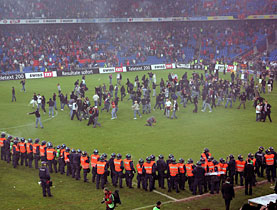
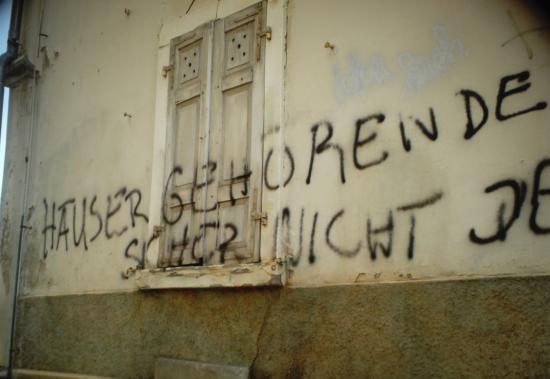
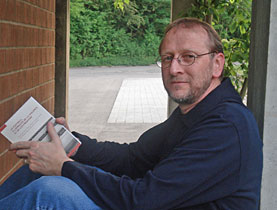
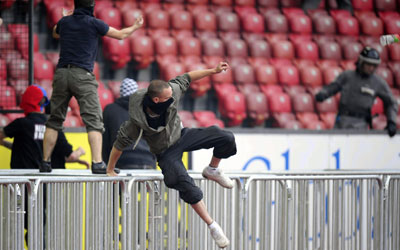
You can find an overview of ongoing debates with our journalists here. Please join us!
If you want to start a conversation about a topic raised in this article or want to report factual errors, email us at english@swissinfo.ch.